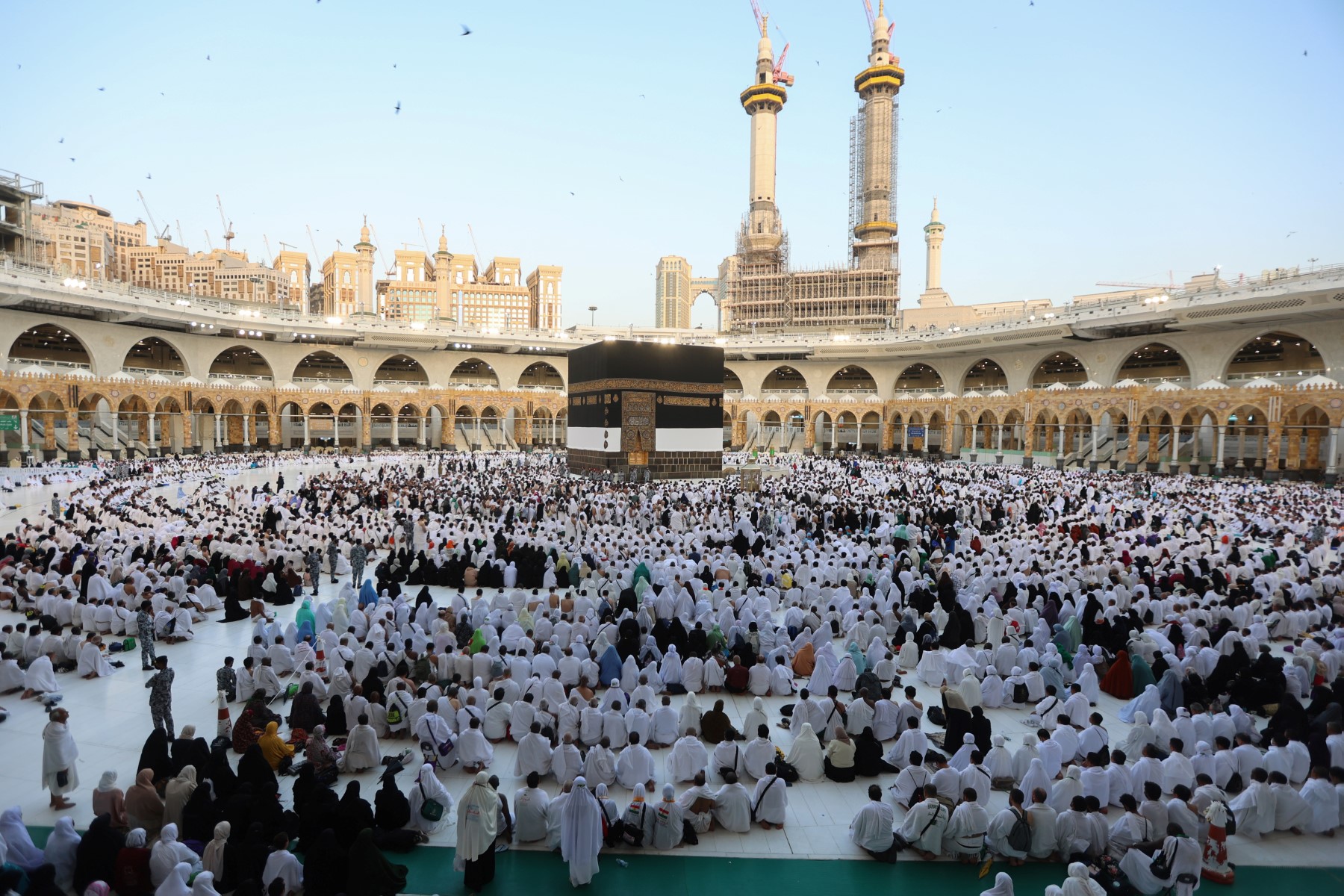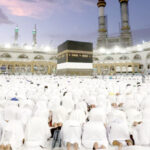Eid al-Adha means the great festival. The festival predates Prophet Muhammad (SAW). It is a festival instituted by the Almighty through the agency of Prophets Ibrahim and Ismail (upon them be peace and blessings of Allah).
But who is, not was, Prophet Ibrahim? He is the founder and patriarch of a heritage of faith, piety and perseverance. He is the patriarch, not a masculinist. Sarah was the wife, the extremely contented and humble mother of Ishaq, from whose womb the Jews emerged. Hajar was also the other wife, from whose womb Ismail emerged. Prophet Ibrahim’s family featured a man, two women and two sons, all of whom were individually destined to impact human history in extremely dissimilar and similar ways. In other words, every action of these characters, while they were on earth, was destined to be a signifier. They were all involved in creating history without actually knowing it; they “transacted” mundane- spiritual businesses which eventually became models till eternity.
Example, dear brethren, Prophet Ibrahim dreamt he offered his son, Prophet Ismail, as sacrifice to the Almighty. He proceeded to inform him of what he saw and the latter, without hesitation, encouraged his father to carry out the divine inspiration without prevarication. Why was Prophet Ibrahim blessed with such a child who was ready to travel with him in the wilderness of spirituality? Why was he blessed with such a faithful child? My teachers suggested it was pay-back time for him. Yes. Prophet Ibrahim was equally dutiful to his parents. The Almighty, therefore, would not and could not have blessed him with another son other than a lovely and dutiful one.
My brother, where and how is your father today? Pause a moment and ask yourself: where and how is your mama now?
Lai: I’m extremely sad, funds allocated to tackle fake news not enough
Hakeem Odumosu says appointment as EFCC Chairman is fake news
Thus, in that lonely desert that day, father and son got together to do what the father deemed to be the bidding of the Almighty. He wanted to sacrifice his son; the son wanted to offer himself to the Almighty. Father desired to please the Almighty; the son wanted to curry the favour of the owner of the heavens and earth. Meanwhile, the mother of the son, Hajar, occupied a lonely space. In silence, she bore the pain of the inevitable loss of her son. In silence, she opened up her heart to the Almighty. Ismail was the only fruit of her womb. She had hoped he would be alive to take care of her tomb. But there she was all alone as she submitted her desires and aspirations to the Almighty, the owner of her womb and tomb. She knew He was there watching over her son as he went through the most painful experience in submission and devotion.
Brethren, Eid al-Adha is around to remind us, once again, of how the Almighty usually intervenes to turn a situation of hopelessness to that of hope and happiness. Prophet Ibrahim was told: “You have indeed affirmed the dream,” and consequently a beautiful ram was given to him as a ransom for his son. Thus, sacrifice became not an end in itself but a means towards a nobler end: an end to the sacrifice of humans in history, an end to the ascension of pernicious authorities in humans which usually makes them go against the will of the Almighty, an end to greed, conceit and inane glorification of the ephemeral, not the eternal.
Sacrifice of animals on this day reminds the servants of the Almighty of their utter weakness in relation to every entity in the universe. Were it not for the will and favour of the Almighty, how could we by ourselves control and exert our authority over these sacrificial lambs?
Thus, on this hallowed day, prepare to observe the Sunnah of our leader. Take a bath before Fajr prayers and put on new clothes (or the best available). It is a sunnah for men to use perfume not only on Eid days, but always. Observe fasting while going to the praying ground. Set out early. Stop on the way to offer seats in your car to your brethren. Do not wait to be asked before you offer such assistance. In low voice, say the glorification of the Almighty. Remember Eid al-Adha signifies our arrival for a religious duty; it also signals our constant departure to walk with our creator. Somebody asked me, “Who knows tomorrow?” A brother intervened and said, “Nobody does.” But who owns tomorrow?” He queried again. “It is the Almighty,” we chorused. May He who knows and owns tomorrow dispel our sorrow and lead us out of this tunnel to underperformance and pettiness.

 Join Daily Trust WhatsApp Community For Quick Access To News and Happenings Around You.
Join Daily Trust WhatsApp Community For Quick Access To News and Happenings Around You.
![palestinians hold eid al adha prayers by the ruins of ar rahma mosque destroyed by israeli air strikes, in khan younis, in the southern gaza strip. [mohammed salem reuters]](https://dailytrust.com/wp-content/uploads/2024/06/palestinians-hold-eid-al-adha-prayers-by-the-ruins-of-ar-rahma-mosque-destroyed-by-israeli-air-strikes-in-khan-younis-in-the-southern-gaza-strip.-mohammed-salem-reuters-150x150.jpg)

